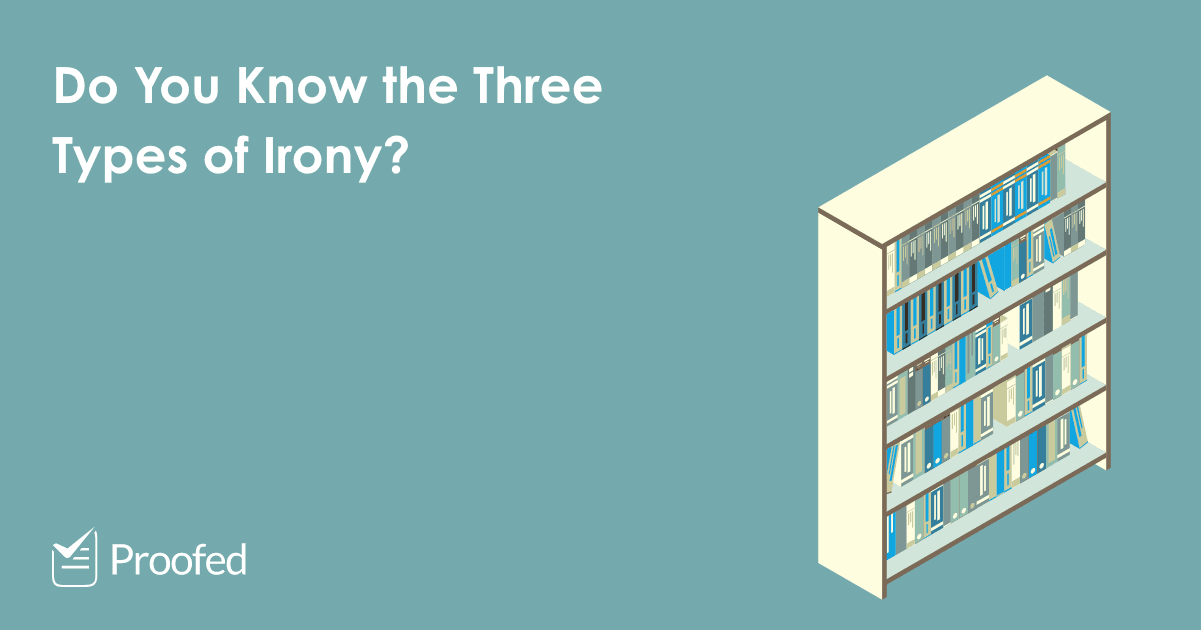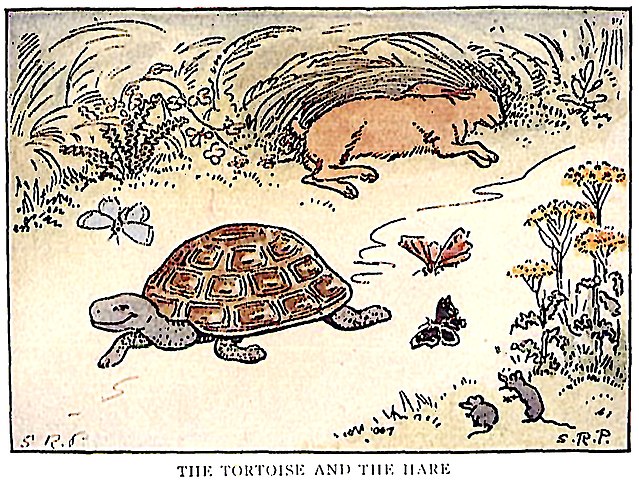Verbal Irony Vs Situational Irony

The Three Types of Irony: Verbal, Situational and Dramatic
Irony is frequently misunderstood. And the fact there are 3 types doesn't help! Merely it is a useful tool in literary writing and may fifty-fifty crop upwardly in daily life, so it is worth understanding the differences between the three key types of irony:
- Exact irony (i.east., using words in a non-literal way)
- Situational irony (i.e., a difference betwixt the expected and actual outcomes of a situation or action)
- Dramatic irony (i.e., an audience knowing something the characters don't)
Check out our guide below for more than on how these work. And if you lot're concerned about misusing the term "irony" in your writing, you tin also take a wait at our post on using the word "ironic" correctly.
Exact Irony
Exact irony involves using words to mean the opposite of their literal definitions. Or, in simpler terms, verbal irony is saying one thing but pregnant the contrary. For example, imagine someone proverb the following:
What a great day: I crashed my automobile and lost my winning lottery ticket!
Here, the speaker is using "great" ironically. They've actually had a terrible solar day! But they say the contrary of what they mean to describe attention to the departure between a "corking" day and the one they really had.
I common form of exact irony is sarcasm, where the speaker uses irony to mock or brand fun of something. However, not all exact irony is sarcastic: irony is only sarcasm when the aim is to ridicule.
Situational Irony
Situational irony occurs when the outcome of a circumstance or action does not friction match our expectations. Call back about Aesop'southward fable of "The Tortoise and the Hare." Just like the hare, at the outset, we'd never await the tortoise to win the race because hares are much faster. The unexpected nature of the tortoise's eventual win emphasizes the moral of the story, that persistence and focus are of import for success, or "slow and steady wins the race."
Find this useful?
Subscribe to our newsletter and get writing tips from our editors straight to your inbox.

This type of irony allows writer to brand a strong impression past subverting the reader's expectations. It can be used simply to shock or entertain, merely it tin can besides encourage an audience to reflect on a primal theme.
Dramatic Irony
Dramatic irony is a structural device that involves the audience knowing something the characters are unaware of. This is oft a key piece of information nigh a state of affairs and its likely issue.
This type of irony increases tension, makes the audition feel powerful (I know something they don't know!), and builds upwards anticipation. When will the truth finally be found out? How will the characters react?
A well-known literary case of dramatic irony is seen in Shakespeare's Romeo and Juliet. (Spoilers ahead!) Romeo kills himself because he believes Juliet is dead, when the audience knows that she is near to wake upwards.
Using Irony in Your Own Writing
If you're considering using irony in your writing, keep these key points in mind:
- Irony involves things non being what they seem, and so you can use information technology to entertain and surprise, simply besides to emphasize certain themes in a text.
- It tin exist used to comic or tragic effect.
- Irony can include a lot of things, from a few words used ironically to make a indicate to an overarching structural device that runs through a story.
As such, it is worth thinking most the 3 types of irony and which one(south) yous intend to apply. And if you're working on some writing at the moment, remember that our expert proofreaders are on hand 24/7 to help you make sure the final product is the all-time it can be.
Verbal Irony Vs Situational Irony,
Source: https://proofed.com/writing-tips/the-three-types-of-irony-verbal-situational-and-dramatic/
Posted by: quanwhouners.blogspot.com


0 Response to "Verbal Irony Vs Situational Irony"
Post a Comment